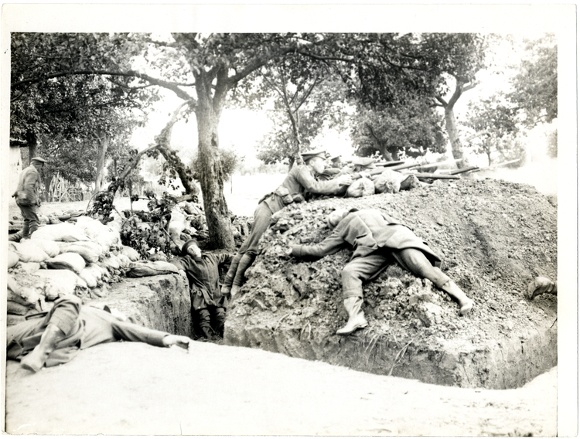Wilfred Owen, selected poems Contents
- Wilfred Owen: Social and political background
- Wilfred Owen: Religious / philosophical context
- Wilfred Owen: Literary context
- Wilfred Owen: 1914
- Wilfred Owen: Anthem for Doomed Youth
- Wilfred Owen: At a Calvary near the Ancre
- Wilfred Owen: Disabled
- Wilfred Owen : Dulce et Decorum Est
- Wilfred Owen: Exposure
- Wilfred Owen: Futility
- Wilfred Owen: Greater Love
- Wilfred Owen: Hospital Barge
- Wilfred Owen: Insensibility
- Wilfred Owen: Inspection
- Wilfred Owen: Le Christianisme
- Wilfred Owen: Mental Cases
- Wilfred Owen: Miners
- Wilfred Owen: S.I.W
- Wilfred Owen: Soldier’s Dream
- Wilfred Owen: Sonnet On Seeing a Piece of Our Heavy Artillery Brought into Action
- Wilfred Owen: Spring Offensive
- Wilfred Owen: Strange Meeting
- Wilfred Owen: The Dead-Beat
- Wilfred Owen: The Last Laugh
- Wilfred Owen: The Letter
- Wilfred Owen: The Parable of the Old Man and the Young
- Wilfred Owen: The Send-Off
- Wilfred Owen: The Sentry
- Wilfred Owen: Wild with All Regrets
The Sentry - Synopsis and commentary
Synopsis of The Sentry
Owen and his men have found an old ‘Boche’ dug-out but they have been observed by the Germans and are under constant bombardment. Conditions are made hellish by the enemy attack but also by the heavy rain which pours into the dug-out. The men stand waist-high in slush, it is impossible to escape and the place stinks.
At last the dug-out is directly hit by a whizz-bang, which blows the sentry off his feet. He falls down the steps into the dug-out and is submerged in the waist-high mud. The soldiers expect to retrieve a corpse but the sentry is still alive. He cries out that he is blind but the writer assures him that if he can see only a feint light from the candle he holds to his eyes then he will, in time, recover his sight. The sentry tells him that he can see nothing. Owen recounts how the man’s damaged eyes haunt him still in dreams.
 The attack continues. Owen is distracted by further attacks and other duties. He tells us that he tries not to remember the horrors of the event. However he does recall that the sentry shouts out above the noise that he can see his comrades’ lights. Owen tells us that in fact all their lights had been extinguished.
The attack continues. Owen is distracted by further attacks and other duties. He tells us that he tries not to remember the horrors of the event. However he does recall that the sentry shouts out above the noise that he can see his comrades’ lights. Owen tells us that in fact all their lights had been extinguished.
Commentary on The Sentry
Context
Owen began The Sentry while he was receiving hospital treatment at Craiglockhart in 1917. He made further alterations at Scarborough in 1918, when he was training to return to France. The Sentry was finally completed in France in September 1918, a few weeks before his death.
On January 16th 1917 Owen had written the following in a letter to his mother:
It took a year and a half for this event, perhaps one of the most personal from Owen’s viewpoint, to become the poem The Sentry.
Investigating commentary on The Sentry
- Owen’s own role in The Sentry is very clear. In some ways this poem echoes Dulce et Decorum Est. Look at the way in which Owen writes about himself in both poems.
- Compare the way in which Owen writes about his own responses to the suffering of one particular soldier in each of the poems.
- Compare the way in which Owen describes the details of artillery fire in The Sentry and Dulce et Decorum Est.